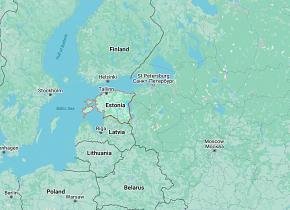Rising interest rates cool crazy Toronto real estate market
As we head into June, the first
wave of summer warmth, rising interest rates, and the Ontario provincial
election are all contributing to a slowdown in the Toronto-area real
estate market.
According to Patrick Rocca, broker with Bosley Real Estate Ltd., prices in the core 416 area code are holding up, but he is seeing a drop in showings and fewer bids when an offer deadline approaches.
"Activity was down dramatically," Mr. Rocca says of the week preceding the Bank of Canada's expected rate hike on June 1 and the June 2 election.
The weekend before those events brought heat and sunshine, which may have caused more people to take a break from house hunting in the Leaside and Davisville neighbourhoods where he does a lot of his business.
A semi-detached house in East York that Mr. Rocca listed with an asking price of $1.429 million had received no offers by the deadline for accepting bids a few days before the central bank meeting.
As a result, Mr. Rocca is altering his own strategies. He recently sold one house to a "bully" who refused to wait until the scheduled date before making an offer.
Mr. Rocca previously stated in his listings that sellers would not consider bully bids. However, as the market shifts, he now advises sellers to be open to such pre-emptive offers.
"The buyer pool has significantly shrunk," he says.
Mr. Rocca monitors listings throughout midtown.
In one case, a midtown house listed with an asking price of $4.2-million was recently relisted with a $4.5-million asking price.
The story continues below the advertisement.
Mr. Rocca points out that one of his recent listings had only 10 appointments booked.
He contrasts the current level of buyer interest with that of February, when one semi-detached house he listed received 97 showings in a week and sold for a record price.
A third comparable property had 31 showings a few weeks ago.
Mr. Rocca says the drop in bidders hasn't worried him because the remaining buyers appear to be more serious.
According to Jimmy Molloy, a real estate agent with Chestnut Park Real Estate Ltd., a combination of strong demand and limited supply in the core 416 area code is keeping prices high.
According to Mr. Molloy, the market was overheated earlier in February and is now returning to more normal activity.
Despite this, some properties are still selling quickly.
Mr. Molloy and Justine Deluce of Chestnut Park recently sold 63 Old Forest Hill Rd., a circa 1934 mansion, for the full asking price of $17.198 million.
According to Mr. Molloy, the landmark house, which has 7,000 square feet of living space and a lot of more than a half acre, drew two offers and sold after four days on the market.
According to Mr. Molloy, while first-time and some move-up buyers buy a home out of necessity, luxury buyers typically do not buy for a practical reason like adding a bedroom.
While most consumers are concerned about rising interest rates, he claims that first-time buyers are particularly affected.
According to the Toronto Regional Real Estate Board, the average price in the Greater Toronto Area in February was $1,344,544 due to high demand and limited supply at the start of 2022. The average price in the GTA had fallen to $1,254,436 in April.
Mr. Molloy believes that federal and provincial rule changes contributed to the decline. In its 2022 federal budget, the Trudeau government announced a two-year ban on foreign buyers purchasing residential real estate, while the Ontario government raised the foreign buyer's tax from 15% to 20%.
He adds that the Bank of Canada's two rate hikes made buyers more hesitant.
In April, the average price of a detached house in the 416 area code was $1,947,975, down from $2,073,989 in February.
According to TRREB, the average price of a detached house in the 905 dropped to $1,526,791 in April from $1,727,963 in February.
According to Farah Omran, economist at Bank of Nova Scotia, a 12.6 percent (seasonally adjusted) drop in sales in April from March defied the seasonal trend.
Many sales were likely pushed forward as consumers braced for rising interest rates, she adds, and expectations of additional hikes appear to be hastening their effectiveness.
"The low-for-long-term rate environment that preceded the pandemic contributed to some Canadians' long-held belief that rates will never rise," she writes in a client note.
According to her, Bay Street is now pricing in more Fed rate hikes and a significant increase in long-term rates. This dynamic is causing fixed mortgage rates, which are influenced by government bond yields, to adjust quickly. Variable interest rates are also rising, in line with the central bank's trend setting rate.
Ms. Omran observes that sellers are sometimes forced to accept offers that are lower than what they expected two years ago, as well as offers with conditions attached.
According to the economist, while the GTA is leading the declines in national sales and prices, TRREB data shows that the drop in the 905 is more pronounced. Suburban detached homes and townhouses, which saw the most price increases during the pandemic, are now the hardest hit, she says.
According to Ms. Omran, this reversal likely signals a rebound in the downtown core as many businesses return to the office and rising gas prices make commuting less affordable – in addition to those outlying regions losing their affordability advantage.
Looking ahead, Mr. Rocca anticipates that the summer will be relatively slow as people resume travel now that pandemic-related restrictions have been lifted.
However, he is more concerned about the outlook after Labor Day if the Fed makes another aggressive move this summer.
When prices fall, sentiment can shift dramatically: buyers on the fence are more likely to believe they will get a better deal later if they wait, according to Mr. Rocca.
"The fall is the big question," he says.
According to Patrick Rocca, broker with Bosley Real Estate Ltd., prices in the core 416 area code are holding up, but he is seeing a drop in showings and fewer bids when an offer deadline approaches.
"Activity was down dramatically," Mr. Rocca says of the week preceding the Bank of Canada's expected rate hike on June 1 and the June 2 election.
The weekend before those events brought heat and sunshine, which may have caused more people to take a break from house hunting in the Leaside and Davisville neighbourhoods where he does a lot of his business.
A semi-detached house in East York that Mr. Rocca listed with an asking price of $1.429 million had received no offers by the deadline for accepting bids a few days before the central bank meeting.
As a result, Mr. Rocca is altering his own strategies. He recently sold one house to a "bully" who refused to wait until the scheduled date before making an offer.
Mr. Rocca previously stated in his listings that sellers would not consider bully bids. However, as the market shifts, he now advises sellers to be open to such pre-emptive offers.
"The buyer pool has significantly shrunk," he says.
Mr. Rocca monitors listings throughout midtown.
He is seeing more offer dates come and go without a sale these days.
After
an attention-grabbing below-market price fails to spark a bidding war,
the property is frequently relisted at a higher price.
In one case, a midtown house listed with an asking price of $4.2-million was recently relisted with a $4.5-million asking price.
The story continues below the advertisement.
Mr. Rocca points out that one of his recent listings had only 10 appointments booked.
He contrasts the current level of buyer interest with that of February, when one semi-detached house he listed received 97 showings in a week and sold for a record price.
A comparable property had 51 showings in March and still set a new price record.
A third comparable property had 31 showings a few weeks ago.
Similarly,
at the start of the year, the number of bidders at the table frequently
reached double digits, but those participants have dwindled.
Mr. Rocca says the drop in bidders hasn't worried him because the remaining buyers appear to be more serious.
According to Jimmy Molloy, a real estate agent with Chestnut Park Real Estate Ltd., a combination of strong demand and limited supply in the core 416 area code is keeping prices high.
According to Mr. Molloy, the market was overheated earlier in February and is now returning to more normal activity.
Despite this, some properties are still selling quickly.
Mr. Molloy and Justine Deluce of Chestnut Park recently sold 63 Old Forest Hill Rd., a circa 1934 mansion, for the full asking price of $17.198 million.
According to Mr. Molloy, the landmark house, which has 7,000 square feet of living space and a lot of more than a half acre, drew two offers and sold after four days on the market.
According to Mr. Molloy, while first-time and some move-up buyers buy a home out of necessity, luxury buyers typically do not buy for a practical reason like adding a bedroom.
While most consumers are concerned about rising interest rates, he claims that first-time buyers are particularly affected.
According to the Toronto Regional Real Estate Board, the average price in the Greater Toronto Area in February was $1,344,544 due to high demand and limited supply at the start of 2022. The average price in the GTA had fallen to $1,254,436 in April.
Mr. Molloy believes that federal and provincial rule changes contributed to the decline. In its 2022 federal budget, the Trudeau government announced a two-year ban on foreign buyers purchasing residential real estate, while the Ontario government raised the foreign buyer's tax from 15% to 20%.
He adds that the Bank of Canada's two rate hikes made buyers more hesitant.
In April, the average price of a detached house in the 416 area code was $1,947,975, down from $2,073,989 in February.
According to TRREB, the average price of a detached house in the 905 dropped to $1,526,791 in April from $1,727,963 in February.
According to Farah Omran, economist at Bank of Nova Scotia, a 12.6 percent (seasonally adjusted) drop in sales in April from March defied the seasonal trend.
Many sales were likely pushed forward as consumers braced for rising interest rates, she adds, and expectations of additional hikes appear to be hastening their effectiveness.
"The low-for-long-term rate environment that preceded the pandemic contributed to some Canadians' long-held belief that rates will never rise," she writes in a client note.
According to her, Bay Street is now pricing in more Fed rate hikes and a significant increase in long-term rates. This dynamic is causing fixed mortgage rates, which are influenced by government bond yields, to adjust quickly. Variable interest rates are also rising, in line with the central bank's trend setting rate.
Ms. Omran observes that sellers are sometimes forced to accept offers that are lower than what they expected two years ago, as well as offers with conditions attached.
According to the economist, while the GTA is leading the declines in national sales and prices, TRREB data shows that the drop in the 905 is more pronounced. Suburban detached homes and townhouses, which saw the most price increases during the pandemic, are now the hardest hit, she says.
According to Ms. Omran, this reversal likely signals a rebound in the downtown core as many businesses return to the office and rising gas prices make commuting less affordable – in addition to those outlying regions losing their affordability advantage.
Looking ahead, Mr. Rocca anticipates that the summer will be relatively slow as people resume travel now that pandemic-related restrictions have been lifted.
However, he is more concerned about the outlook after Labor Day if the Fed makes another aggressive move this summer.
When prices fall, sentiment can shift dramatically: buyers on the fence are more likely to believe they will get a better deal later if they wait, according to Mr. Rocca.
"The fall is the big question," he says.
Comments
There are 0 comments on this post













